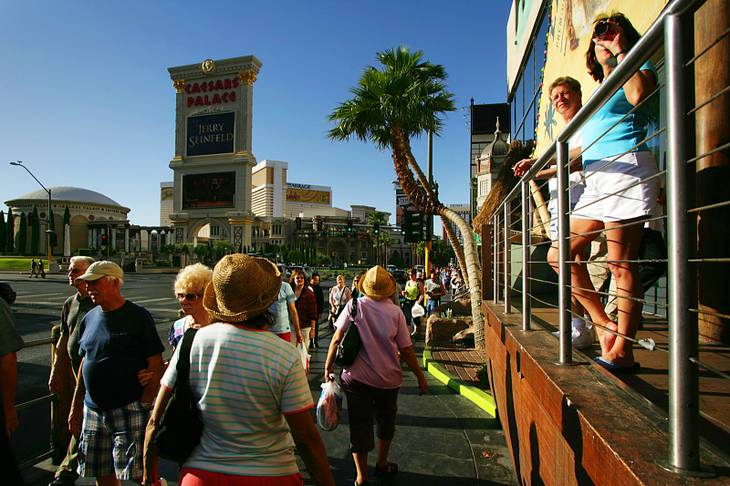-
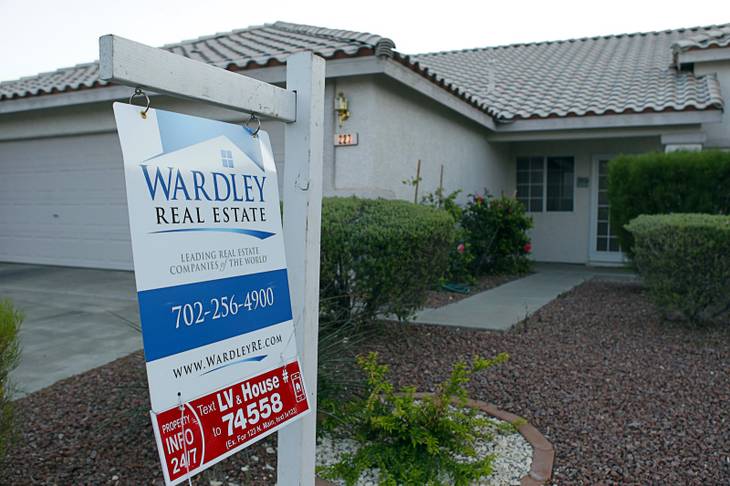
Local home buyers
The Las Vegas Valley housing market started to bounce back in 2012 with increased sales, rising prices and more building permits. But the recovery was fueled largely by out-of-state investors paying cash for cheap homes and then renting them out.
Local residents who want a house but need a mortgage to pay for it in many cases have been left out in the cold. Inventory is slim and sellers prefer cash buyers. Unlike mortgage borrowers, cash investors can afford to bid up sales prices and close deals quickly since they don’t need approval from a lender.
Cash buyers account for roughly half of all purchases in the valley. Investors often instruct their brokers to buy as many homes as possible.
It’s now virtually a given that multiple bidders will push up a home’s price, and it’s “extremely difficult and stressful” for brokers to sell to clients who actually want to live in the homes, Home Builders Research President Dennis Smith said in a recent report.
“Investors are usually the primary competition,” he said.
-
Utility customers
Utility companies contending with rising costs and shrinking revenue proposed several measures this year to increase profits and cause Nevadans’ utility bills to rise.
The Southern Nevada Water Authority, for example, approved a surcharge that caused companies’ monthly water bills to jump as much as 300 percent. Business owners complained the hike would put them out of business.
In July, SNWA approved a credit to help cut the costs but reversed course in September and said that all rates and charges were back on the table.
SNWA aims to use the money to finance projects and boost capital reserves.
NV Energy is seeking approval to institute a $9.8 million consumer surcharge to make up for revenue lost because of customers’ conservation efforts, even as the company saw its income rise 62 percent year-over-year during the first nine months of 2012.
The move is opposed by the Nevada Bureau of Consumer Protection.
-
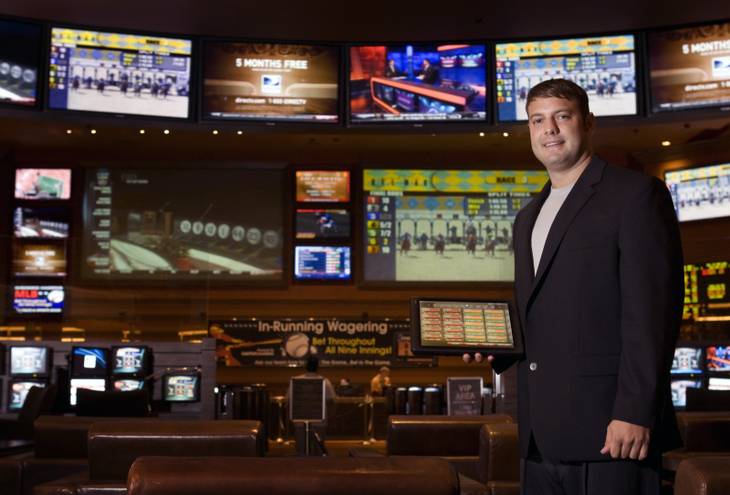
Michael Colbert
Michael Colbert, a high-profile Cantor Gaming vice president and the sports book director at the M Resort, was among 25 people arrested around the country Oct. 24 in an alleged illegal sports betting ring with ties to offshore gambling websites.
Eight Las Vegas area residents were arrested in the illegal bookmaking and money laundering case.
Colbert was charged with enterprise corruption, conspiracy to operate an illegal gambling enterprise and three counts of money laundering. An indictment out of New York alleges he arranged for the transfer of $100,000 in gambling proceeds between Las Vegas and New York in July 2011.
Prosecutors say bookmakers oversaw agents who recruited clients to make wagers on offshore gambling websites. Colbert is accused of helping build those client lists for the illegal betting.
Nevada gaming regulators are looking into Colbert’s activities and talking to Cantor Gaming, but Cantor said the investigation involved only Colbert and not the company.
-
Travelers looking for a deal
Customers who booked discount travel and entertainment through Prestige Travel Inc. received unfortunate news in October. The Las Vegas company declared bankruptcy.
Its website TripRes.com abruptly shut down Oct. 23, causing headaches for tourists.
Prestige filed 33 lawsuits against the hotel and casino companies it worked with, hoping a judge would order them to honor the prepaid reservations. The litigation is pending.
The bad news reverberated locally, too. Ninety people were left jobless when TripRes.com shut down.
-
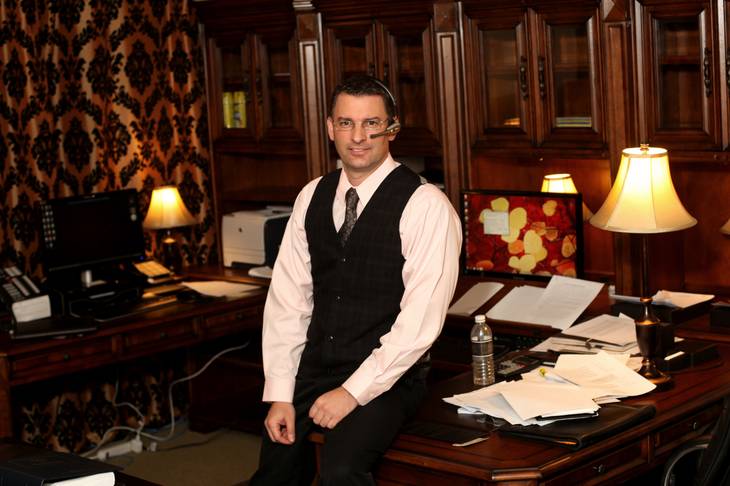
Righthaven
If Righthaven, the Las Vegas copyright holding and enforcement company, had a bad year in 2011, it had an even worse year in 2012.
It endured a series of collections by creditors, including one who seized and auctioned its website domain name and trademark. (The website sold for $3,300, while the trademark fetched $1,025.) The copyrights Righthaven obtained from newspapers and others for the purpose of filing lawsuits also went up for auction, but they failed to attract any bids.
“It would seem that everything that Righthaven and its parade of idiots touch turns to garbage,” said Marc Randazza, one of the attorneys fighting the company.
Righthaven gained national notoriety in 2010 when it teamed up with the Las Vegas Review-Journal and the Denver Post to sue people accused of posting content from the newspapers. But by mid-2011, judges had rejected the no-warning lawsuit spree that spanned 275 cases.
Judges ordered Righthaven to pay $318,000 in attorney’s fees, but Righthaven couldn’t or wouldn’t pay, even as it paid outside attorneys to pursue legal appeals.
The State Bar of Nevada also launched an inquiry this year into Righthaven, the firm’s CEO Steven Gibson (pictured above) and two former company attorneys. The Bar hasn’t revealed what it is looking into, but defense attorneys say Righthaven misused the court system to win settlements from defendants with dubious legal claims and coercive legal strategies.
Despite the problems, Gibson, a Las Vegas attorney, this year fended off efforts by a creditor to remove him from the company and to have Righthaven’s appeals canceled. Two Righthaven appeals remain open.
-
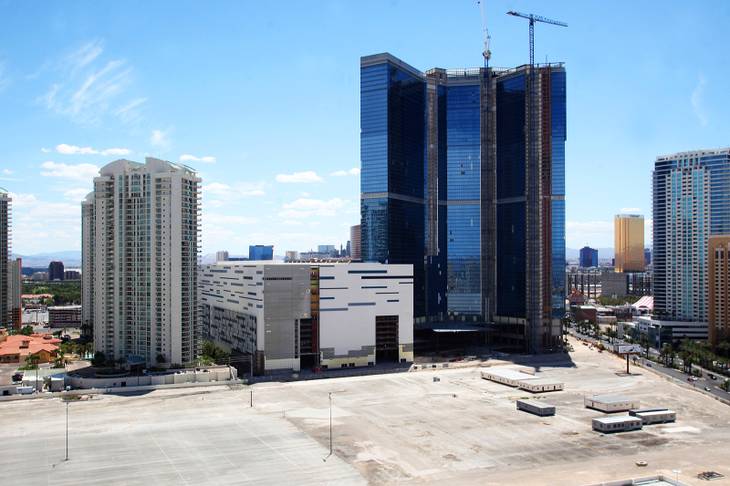
Commercial real estate owners
Commercial real estate remained stuck in the doldrums.
Vacancy rates were high and rents were basement low as landlords offered free rent and cash-for-improvements incentives to lure tenants. New construction was at a near stand-still, and mothballed projects around the valley — especially on or near the Strip — sat untouched with no plans for completion.
The valley’s office market fared worse than other real estate sub-sectors. Most deals involved local companies moving from one building to another to find more space at cheaper prices.
Most local firms aren’t expanding and few out-of-town companies are moving to Las Vegas. Analysts predict the excess capacity will sit untouched for some time.
Altogether, there are so many empty office buildings that some real estate executives say they should just be bulldozed.
Southern Nevada’s office market had a 23.5 percent vacancy rate in the third quarter and an average asking rent of $1.90 per square foot. A year earlier, the vacancy rate was 23.7 percent with rents at $1.98 per square foot, according to the brokerage firm Colliers International.
The retail market had a 10.3 percent vacancy rate and average asking rents of $1.37 per square foot. A year earlier, the vacancy rate was 11.6 percent and rents were $1.41 per square foot.
The industrial market’s third-quarter vacancy rate was 15.1 percent, with the average asking rent at 48 cents per square foot. A year earlier, the vacancy rate was 14.8 percent and the asking rent was 52 cents.
There still were some notable deals, though. In late September, General Growth Properties sold a portfolio of 32 office buildings in Summerlin to Hines Interests, a Houston-based real estate giant, and Oaktree Capital Management, a Los Angeles investment firm. The sale was one of the largest commercial real estate deals in Las Vegas in years.
-
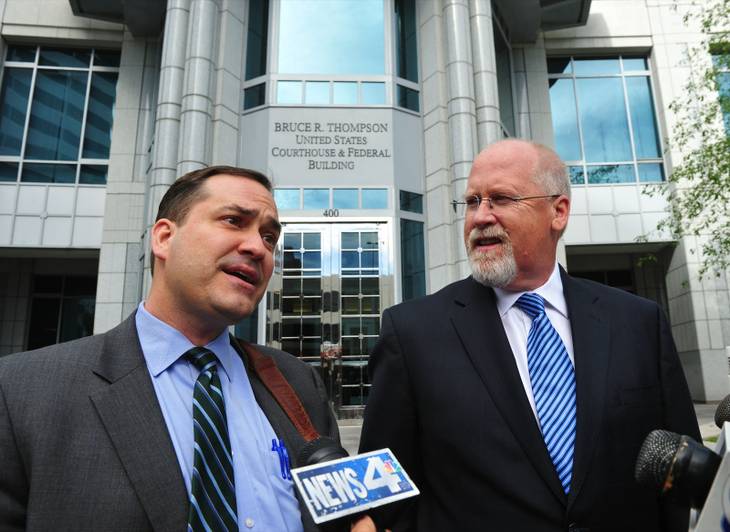
Harvey Whittemore
Once Nevada’s most powerful lobbyist, Harvey Whittemore became entangled in several civil and criminal court cases in 2012.
In January, Whittemore’s business partners sued him, charging he embezzled tens of millions of dollars from companies he co-managed.
Whittemore (pictured above, right, with defense attorney John Arrascada) fired back the next month, suing the partners — members of Northern California’s powerful Seeno family — claiming they had been involved in racketeering and threats of violence to coerce Whittemore to turn assets over to them. The Coyote Springs housing development north of Las Vegas is one of the assets.
Worse, the suits turned out to be only an opening act for Whittemore.
In June, he was indicted in federal court on charges he made unlawful campaign contributions, caused false statements to be made to the Federal Election Commission and lied to the FBI when questioned about political fundraising.
All of the cases remain open.
-
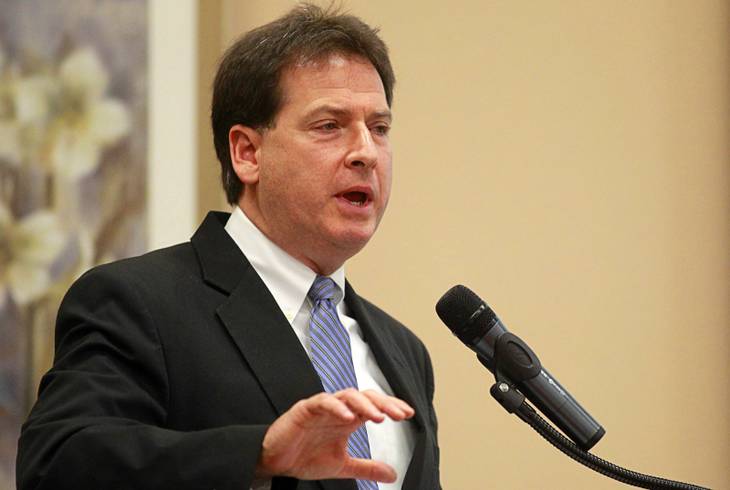
Lt. Gov. Brian Krolicki
You have to feel a little sorry for Lt. Gov. Brian Krolicki.
With Gov. Brian Sandoval taking the reins of the newly revamped Governor’s Office of Economic Development, Krolicki no longer chairs the Economic Development Commission, one of the two important state commissions his office oversees.
He’s still in charge of the Tourism Commission, but one of his biggest projects — namely bringing the 2022 Winter Olympic Games to Lake Tahoe — fizzled over the summer when the U.S. Olympic Committee decided not to offer a bid for that year.
Krolicki and some of his Northern Nevada colleagues had been working on preparing an Olympic bid for years. Krolicki vowed to continue to try to bring world-class winter competitions to the state.
Last month, one of those competitions came through, but not for Northern Nevada. The 2014 World Financial Group Continental Cup curling competition will be held Jan. 16-19, 2014, at the 9,500-seat Orleans Arena in Las Vegas.
By the time the curling competition comes to town, Krolicki will begin serving his last year as lieutenant governor. He will be term-limited out of office.
What office, if any, Krolicki will pursue then remains to be seen.
-
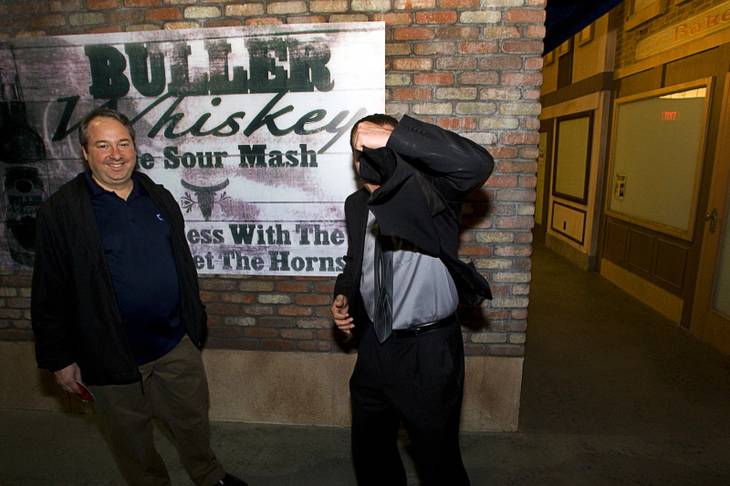
The Las Vegas Mob Experience
The Las Vegas Mob Experience at the Tropicana converted to new ownership this year and became what’s now called the Mob Attraction Las Vegas. The change came on the heels of a $20.8 million bankruptcy filed in late 2011.
Mob Experience founder and Las Vegas businessman Jay Bloom (pictured above, left) departed the Mob Experience before the bankruptcy but fought this year in court to seize control of the attraction’s artifacts, including knives, guns, photos and letters.
Bloom claimed a third company he controls and that wasn’t part of the bankruptcy owned the artifacts and leased them to the attraction. Creditors, however, including the current Mob Attraction owner, successfully argued that Bloom and his companies had defaulted on loans backed by the artifacts, and Bloom had no right to repossess them.
-
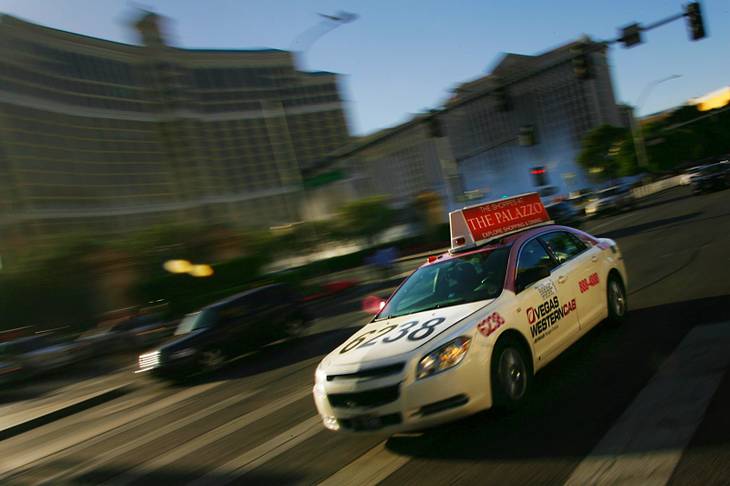
Taxi passengers
If reports of rampant long-hauling are true (and most industry insiders think they are), people riding taxis in Las Vegas have been on the losing end of a scam worth thousands of dollars.
Long-hauling, which is illegal, occurs when a driver takes a customer on an indirect route to a destination. One of the most abused routes is from McCarran International Airport to the Las Vegas Strip by way of the airport tunnel.
Many cab drivers say they have been set up to fail by their bosses who demand ever-increasing bookings and receipts. Some say that unless they long-haul, they’ll never be able to meet their quotas and will get fired. The only way to survive, they say, is to cheat customers.
The Nevada Taxicab Authority began cracking down on long-hauling with stings and surprise enforcements, but the practice continues.
Taxi riders faced another possible blow earlier this month. Two unions prepared to strike after negotiations with cab companies broke down.
The impact, however, shouldn’t be too devastating if a strike is called. The Taxicab Authority voted to allow other companies to run more cabs if a strike occurs.



